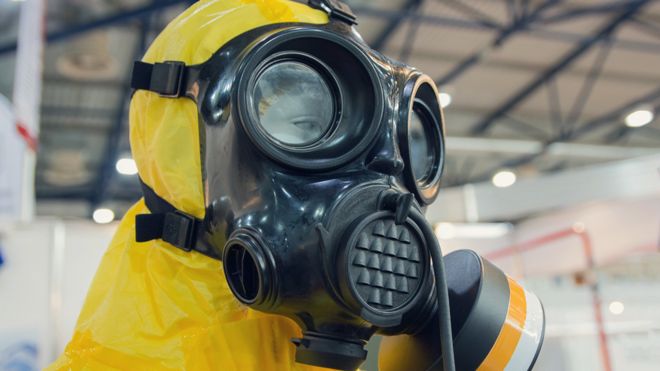Nerve agent: Who controls the world's most toxic chemicals?

International experts are due in the UK, to test samples of the nerve agent used in the attempted murder of a spy and his daughter. How do they keep track of the world's most toxic chemicals?
After collecting samples of the poisons used on Sergei Skripal and his daughter Yulia, a team from the Organisation for the Prohibition of Chemical Weapons (OPCW) will conduct tests, with results expected to take at least a fortnight.
The UK government says the substance used was Novichok - a group of nerve agents it says is "stockpiled" by Russia, which is "culpable" for the attack. It has dismissed Russia's claim that the poison came from the UK's Porton Down facility.
The work of the OPCW is carried out as part of an international control regime that governs what is, or is not, permissible as far as very toxic chemicals are concerned.
This was established by the 1997 Chemical Weapons Convention (CWC), to which 192 countries are signed up members. Only four countries are outside the CWC - North Korea, Israel, Egypt and South Sudan, which has begun the process of signing. They are still bound by the treaty's provisions, under international law.
No comments:
Post a Comment